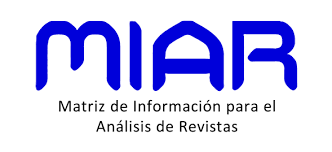EBÜ'L-FEREC İBNÜ'T-TAYYİB'İN EİSAGOGE ŞERHİ
Abstract
This article examines Ibn al-Tayyib's commentary on Porphyry's Eisagoge which was as much influential in Islamic, as it was in medieval Latin scholastic logic. In Islamic logic, as in the Alex-andrian and Syriac before it, Eisagoge, means „Introduction‟, was put at the head of the Aristote-lian Organon. The importance which the Muslim scholars attached to the Eisagoge of Porphyry is evident from the large number of commentaries they wrote on it. Many of the philosophers such as, Farabi, Ibn Sina and Ikhwan al-Safa produced their own ÃŽsagûcî, or Madhal which means „In-troduction‟ in Arabic. Abu al-Faraj Ibn Al-Tayyib, notable Iraqi Nestorian philosopher, physician, theologian, and canon lawyer who flourished in Baghdad in the first half of the eleventh century, wrote a commentary on Porphyry's Eisagoge, the kind of which is usually called Great or Long Commentary.
Abu al-Faraj Ibn Al-Tayyib’s Commentary On Porphyry’s Eisagoge
Abstract
This article examines Ibn al-Tayyib's commentary on Porphyry's Eisagoge which was as much influential in Islamic, as it was in medieval Latin scholastic logic. In Islamic logic, as in the Alex-andrian and Syriac before it, Eisagoge, means „Introduction‟, was put at the head of the Aristote-lian Organon. The importance which the Muslim scholars attached to the Eisagoge of Porphyry is evident from the large number of commentaries they wrote on it. Many of the philosophers such as, Farabi, Ibn Sina and Ikhwan al-Safa produced their own ÃŽsagûcî, or Madhal which means „In-troduction‟ in Arabic. Abu al-Faraj Ibn Al-Tayyib, notable Iraqi Nestorian philosopher, physician, theologian, and canon lawyer who flourished in Baghdad in the first half of the eleventh century, wrote a commentary on Porphyry's Eisagoge, the kind of which is usually called Great or Long Commentary.
Details
| Primary Language | Turkish |
|---|---|
| Journal Section | Articles |
| Authors | |
| Publication Date | June 15, 2009 |
| Published in Issue | Year 2009 Volume: 11 Issue: 19 |
Cite
SAUIFD accepts the Open Access Journal Policy for expanding and flourishing of knowledge.












